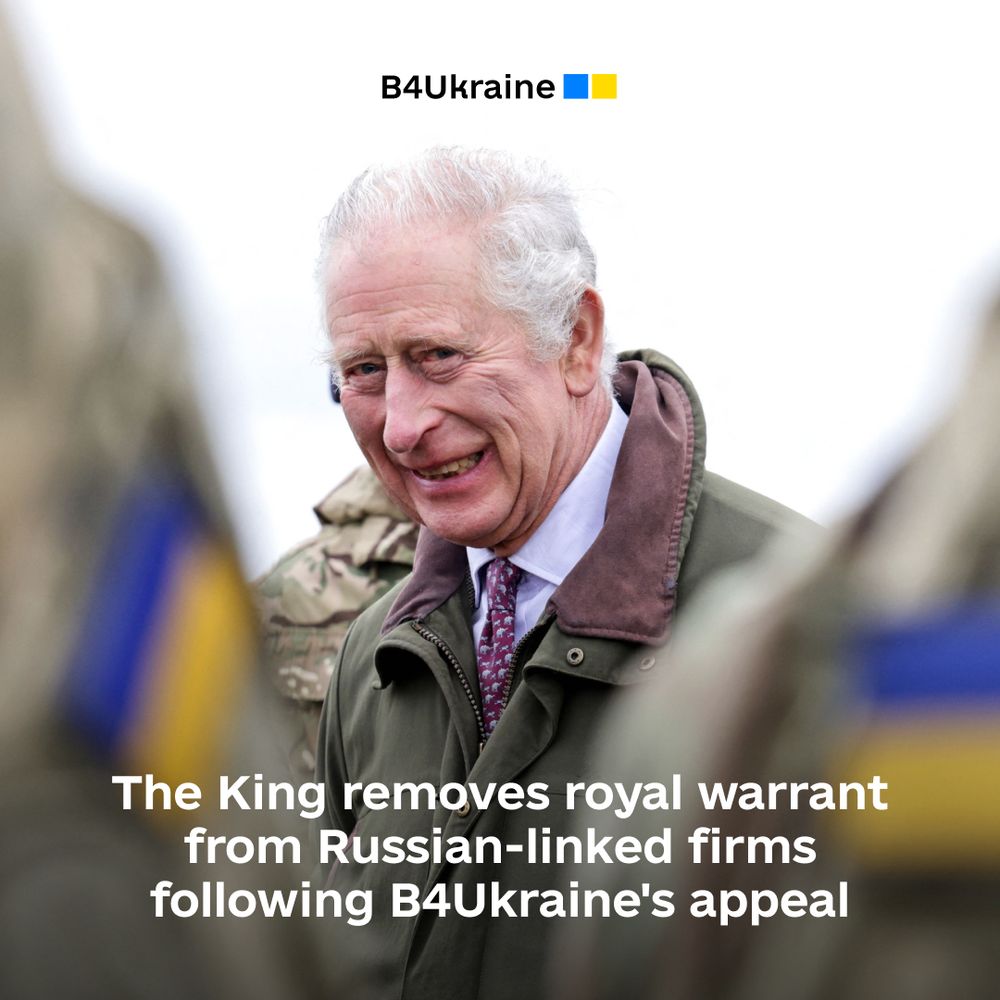
Buckingham Palace has stripped two businesses with ties to Russia of their royal warrants amid a major review of suppliers to the Royal family.
Following the review, two companies who have Russian operations and had previously been awarded a warrant by Charles as Prince of Wales, do not appear on the new list of the King’s warrant holders.
These are healthcare product firm Kimberly-Clark and electronics company Samsung.
It comes amid a major review of almost 800 royal warrants that was triggered by the death of Queen Elizabeth II.
A number of other companies with links to Russia who hold royal warrants will only hear their fate once the review of those awarded by the late Queen has been completed.
The decision to remove royal warrants from Kimberly-Clark and Samsung comes after King Charles was urged to crack down on holders that have continued to do business in Russia since its invasion of Ukraine.
Lost opportunity to save lives
Campaigners had written to the King drawing attention to companies to whom both he and other members of the Royal family had previously awarded warrants and still had ties to Russia, but had yet to receive a response.
A spokesman for B4 Ukraine, a coalition of pro-Ukrainian organisations, said: “The palace’s silence on the 14 royal warrant holders still doing business in Russia is a lost opportunity to save human lives in Ukraine. Every pound paid in corporation tax helps sustain the Kremlin’s war economy and its army’s abuses.
“We urge the royal house to reconsider our request at this critical point in Ukraine’s fight for its survival and independence.”
Firms with links to Russia given a royal warrant by Queen Elizabeth also include Nestle, Unilever, Cadbury (owned by Mondelez), Reckitt and flooring manufacturer Forbo.
Mondelez itself was not awarded a warrant but Cadbury has been a warrant holder since 1854 when it was awarded by Queen Victoria.
Nestle, Mondelez, Unilever and Bacardi have been accused of being “international sponsors of war” by the Ukrainian government, which until recently published a list of companies it deemed to be indirectly funding the war.
B4 Ukraine’s original letter, sent to the King in February, read: “We recognise and commend the Royal family for its unwavering support for Ukraine and its people since the first days of the full-scale invasion.
“In consideration of this, we respectfully request that the palace urgently engages with all royal warrant holder companies to discuss the company’s ongoing activities and relationships in Russia, and to use your influence to urge them to make a swift and responsible exit.”
Pressure on Western companies
Royal warrants are given out to companies whose goods and services are favoured by the Royal family, stretching from large food and drink companies to upmarket tailors and logistics and technology firms.
It comes amid pressure on Western companies to cut ties with Russia from consumers and politicians as the conflict drags on.
While many have scaled down their Russian operations or frozen investment in the country, a large number continue to trade in some form there.
The King has previously voiced support for Ukraine, saying in a February statement: “I continue to be greatly encouraged that the United Kingdom and our allies remain at the forefront of international efforts to support Ukraine at this time of such great suffering and need.
“My heart goes out to all those affected, as I remember them in my thoughts and prayers.”
While Mondelez has pledged more than $15 million (£12 million) in financial support for Ukrainian citizens and discontinued advertising and new product launches in Russia, Dirk Van de Put, its chief executive, claimed in February that investors do not “morally care” about it continuing to do business in Russia.
Hein Schumacher, the chief executive of Unilever, last July described staying in Russia the “least-bad” option for the business.
Nestlé, Unilever, and Bacardi were contacted for comment. The Royal Warrant Holders Association stressed all warrants are currently under review.
A spokesman for Mondelez said: “Cadbury is deeply proud to have been granted its first royal warrant in 1854 and has been a holder of a royal warrant from Her late Majesty The Queen since 1955.”
Buckingham Palace said it would not comment on the grounds on which a warrant had not been renewed, saying only “there are a number of factors that are considered”.